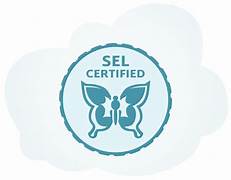Education is evolving. In a world increasingly characterized by rapid change and complexity, the importance of Social and Emotional Learning (SEL) cannot be overstated. SEL encompasses the processes through which individuals—both children and adults—acquire and effectively apply the knowledge, attitudes, and skills necessary to understand and manage emotions, set and achieve positive goals, feel and show empathy for others, establish and maintain positive relationships, and make responsible decisions. Recognizing the critical role of SEL, comprehensive certification programs for educators are now widely available online, providing essential training for teachers and administrators. This article delves into the significance of SEL, explores the benefits of SEL certification, and highlights some of the leading online programs designed to transform education through social and emotional learning.
Understanding Social and Emotional Learning (SEL)
Social and Emotional Learning is an integral part of education and human development. According to the Collaborative for Academic, Social, and Emotional Learning (CASEL), SEL enhances students’ capacity to integrate skills, attitudes, and behaviors to deal effectively and ethically with daily tasks and challenges. The core competencies of SEL include:
- Self-Awareness: Recognizing one’s emotions, thoughts, and values and understanding how they influence behavior.
- Self-Management: Regulating one’s emotions, thoughts, and behaviors in different situations, and setting and working towards personal and academic goals.
- Social Awareness: Showing understanding and empathy for others, recognizing and appreciating diversity.
- Relationship Skills: Establishing and maintaining healthy and rewarding relationships based on cooperation, resistance to inappropriate social pressure, and conflict resolution.
- Responsible Decision-Making: Making ethical, constructive choices about personal and social behavior.
The Importance of SEL in Education
Academic Benefits
Research consistently shows that SEL has a profound impact on students’ academic performance. By fostering a positive learning environment and teaching essential life skills, SEL helps students improve their focus, motivation, and ability to learn. Studies have demonstrated that students who receive SEL instruction have better academic outcomes, with some reporting an average 11 percentile point gain in academic achievement compared to those who do not receive such instruction.
Emotional and Social Benefits
SEL contributes significantly to students’ emotional well-being and social skills. By learning to manage their emotions and build positive relationships, students develop resilience and a greater sense of belonging. These skills are crucial for their overall mental health and for fostering a supportive school climate.
Behavioral Benefits
SEL programs have been shown to reduce behavioral issues, such as aggression and bullying, and improve classroom behavior. When students learn conflict resolution and emotional regulation skills, they are less likely to engage in disruptive behaviors and more likely to contribute to a positive school environment.
Long-term Benefits
The benefits of SEL extend well beyond the classroom. Individuals with strong social and emotional skills are better equipped for success in the workplace and in their personal lives. They tend to have better mental health, higher life satisfaction, and more positive relationships throughout their lives.
The Need for SEL Certification Programs
Given the extensive benefits of SEL, it is essential that educators are well-equipped to implement these practices effectively. Comprehensive SEL certification programs online provide teachers and administrators with the knowledge and tools they need to integrate SEL into their classrooms and schools. These programs cover a range of topics, including:
- Understanding SEL and Its Impact: Comprehensive training on the core competencies of SEL and their importance in education.
- Implementing SEL in the Classroom: Practical strategies for integrating SEL into daily teaching practices and creating a supportive learning environment.
- Assessing SEL: Tools and methods for evaluating students’ social and emotional development and measuring the impact of SEL programs.
- Building a School-wide SEL Culture: Strategies for fostering a school-wide commitment to SEL, including involving families and the community.
Leading Online SEL Certification Programs
Several reputable organizations offer online SEL certification programs for educators. These programs are designed to provide flexible, high-quality training that can be completed at the educators’ own pace. Here are some of the leading online SEL certification programs available:
1. CASEL (Collaborative for Academic, Social, and Emotional Learning)
Program Overview: CASEL offers a range of professional development opportunities for educators, including online courses and certification programs. Their programs are based on the latest research and best practices in SEL.
Key Features:
- Comprehensive coverage of SEL core competencies.
- Practical strategies for implementing SEL in various educational settings.
- Resources for assessing and measuring SEL outcomes.
- Support for building a school-wide SEL culture.
Benefits:
- Access to a wealth of research-based resources and tools.
- Opportunities for collaboration and networking with other educators.
- Certification from a leading organization in SEL.
2. The Yale Center for Emotional Intelligence
Program Overview: The Yale Center for Emotional Intelligence offers an online SEL certification program called “RULER,” which stands for Recognizing, Understanding, Labeling, Expressing, and Regulating emotions. The program is designed to help educators integrate emotional intelligence into their teaching practices.
Key Features:
- Focus on emotional intelligence and its role in SEL.
- Strategies for creating emotionally intelligent learning environments.
- Tools for teaching students to recognize and regulate their emotions.
- Support for fostering positive relationships and a supportive school climate.
Benefits:
- Certification from a prestigious institution known for its research in emotional intelligence.
- Practical, evidence-based strategies for enhancing emotional intelligence in students.
- Access to ongoing support and resources.
3. Second Step
Program Overview: Second Step offers an online SEL certification program that provides educators with the tools they need to create a safe, supportive, and respectful learning environment. The program includes modules on teaching empathy, emotion management, and problem-solving skills.
Key Features:
- Comprehensive curriculum covering all aspects of SEL.
- Interactive, engaging online modules.
- Tools for assessing and tracking students’ SEL progress.
- Resources for involving families and the community in SEL.
Benefits:
- Easy-to-use online platform with a variety of interactive learning materials.
- Practical strategies for integrating SEL into everyday teaching.
- Certification from a respected organization in SEL education.
4. Mindful Schools
Program Overview: Mindful Schools offers an online certification program that combines SEL with mindfulness practices. The program is designed to help educators teach students mindfulness skills, which can enhance their social and emotional development.
Key Features:
- Focus on mindfulness and its role in SEL.
- Practical strategies for teaching mindfulness to students.
- Tools for integrating mindfulness into the classroom.
- Resources for supporting students’ emotional well-being.
Benefits:
- Certification in both SEL and mindfulness practices.
- Access to a supportive community of educators.
- Practical, research-based strategies for enhancing students’ social and emotional skills.
5. Responsive Classroom
Program Overview: Responsive Classroom offers an online SEL certification program that emphasizes the importance of a positive school climate. The program provides educators with strategies for creating a supportive, inclusive, and engaging learning environment.
Key Features:
- Focus on creating a positive school climate.
- Practical strategies for fostering social and emotional development.
- Tools for involving students, families, and the community in SEL.
- Resources for assessing and improving school climate.
Benefits:
- Certification from a respected organization in SEL and school climate.
- Practical, evidence-based strategies for enhancing the learning environment.
- Access to ongoing support and resources.
Implementing SEL Certification Programs: Best Practices
Implementing SEL certification programs requires careful planning and commitment. Here are some best practices for successfully integrating SEL into schools:
1. Secure Administrative Support
Strong support from school administrators is crucial for the successful implementation of SEL programs. Administrators can provide the necessary resources, create policies that support SEL, and foster a school-wide commitment to social and emotional learning.
2. Involve All Stakeholders
SEL is most effective when it involves the entire school community, including teachers, students, families, and the community. Engaging all stakeholders in the process helps to create a shared vision and commitment to SEL.
3. Provide Ongoing Professional Development
Continuous professional development is essential for keeping educators updated on the latest research and best practices in SEL. Offering regular training sessions, workshops, and opportunities for collaboration helps educators stay engaged and motivated.
4. Integrate SEL into Daily Practices
Integrating SEL into daily teaching practices is key to its success. Educators should incorporate SEL lessons into their regular curriculum and use teachable moments to reinforce social and emotional skills.
5. Use Data to Drive Decisions
Regularly assessing and measuring the impact of SEL programs helps to identify areas for improvement and celebrate successes. Using data to drive decisions ensures that SEL initiatives are effective and responsive to the needs of students.
6. Foster a Positive School Climate
Creating a positive school climate is essential for the success of SEL programs. Schools should focus on building a supportive, inclusive, and respectful environment where all students feel valued and connected.
7. Encourage Student Voice and Choice
Giving students a voice in their learning and involving them in decision-making processes helps to empower them and foster their social and emotional development. Encouraging student choice in SEL activities also increases engagement and motivation.
Conclusion
Social and Emotional Learning is a transformative approach that has the potential to significantly enhance the educational experience for students and educators alike. Comprehensive SEL certification programs provide educators with the knowledge and skills they need to effectively integrate SEL into their teaching practices and create supportive, positive learning environments. With the availability of high-quality online SEL certification programs from reputable organizations, educators have access to flexible, evidence-based training that can help them make a lasting impact on their students’ social, emotional, and academic development.



